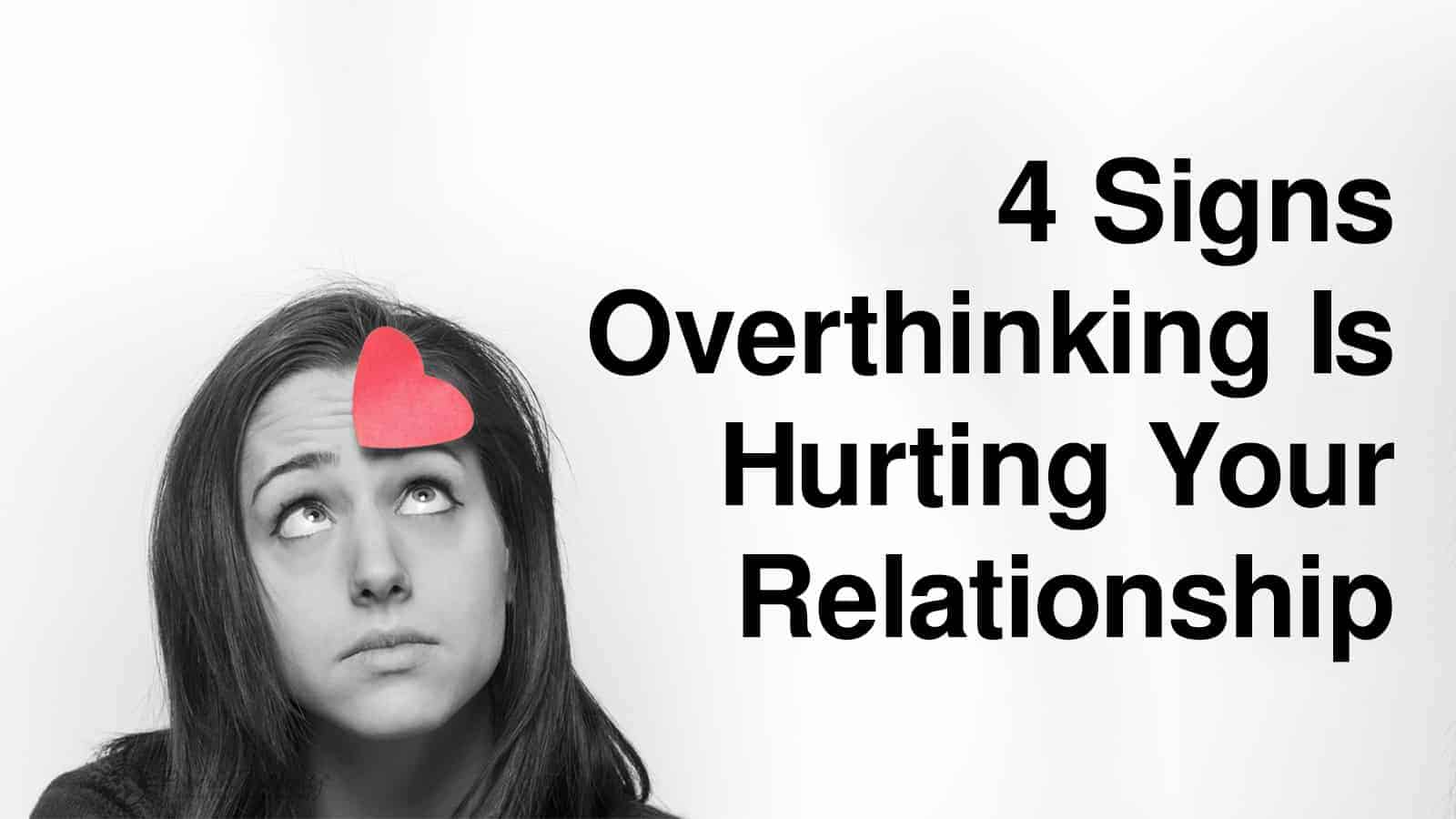We carry past issues into new relationships. When this happens, anxiety takes over while inducing a hefty dosage of overthinking. We fear heartache. We begin the downward spiral of panic reading into every conversation, moment, and silence.
Here are 4 signs that your overthinking might be hurting your relationship:
Related article: 5 Signs You’re An Overthinker
1. Clinging to the phone.
When we carry insecurities we try to control everything around us. Our thoughts are powerful. When our partner doesn’t call or text we begin to fear he/she has someone else. Or, we aren’t as important as we want to be. We check our phones, our messages, and every part of social media available. People are busy. They have jobs, responsibilities, and hobbies. Overthinking creates scenarios that aren’t there. When we get comfortable in relationships we don’t have to be on constant call. Step back when the anxiety appears. Ask yourself, “What has changed for me to feel this way?” Give your partner space to be his/her own person. Obsessing over a phone call creates a tremendous amount of stress.
2. Over analyzing every moment.
Have you spent a great time with your loved one and when the evening is over you begin to analyze every conversation? You begin to find fault in yourself and him/her through replaying sarcastic jokes or comments. Our egos will do anything and everything to feed on insecurities. Our worth gets questioned and you begin to feel like you are on an emotional roller coaster of untruths. You must realize that when you feel good about yourself, everyone else does too. Keeping busy during these moments of panic helps reduce the escalation of an argument while later avoiding insomnia. Take deep breaths. Go for a walk. Take yourself to a movie with a friend. Distraction distances the issue at hand.
3. Putting your partner through a test.
When you begin to question everything, you also put your relationship on a tremendous strain of stress. If you are second guessing everything he/she says you are also creating tension between the two of you. Being in a loving relationship requires trust and respect. If you have your reasons for feeling that he/she isn’t being faithful then you must tackle that issue. But, if this is based on past experiences and unhealthy patterns of obsession then you need to find a way to deal with these issues before your partner is exhausted by the behavior. Miscommunication damages relationships. Sit and express your fears without blame and judgment. The faster you share your thoughts the easier it is to let go of the obsession.
4. Assuming the worst.
Your partner is late for dinner. You’ve called his cell and he doesn’t answer. You call his office and he’s been gone for hours. You immediately believe that he is having an affair. He walks into your home and finds you sitting in hysterical sobs. You don’t let him speak. Or, you kick him out of the house. You don’t know that he’s been in a meeting. You don’t know he had a minor traffic accident. That’s because you assumed the worst before even asking. In his defense, you have not taken the time to hear him.
This happens when our minds transmit post traumatic stress disorder (PTSD) from the past. If one person cheated we assume that everyone else will as well. Overthinking forces the brain to extract any scenario from past events while creating new drama. This also causes depression and high levels of anxiety. Some people begin to feel the effects immediately through migraines, upset stomachs, and heart palpitations. The body goes on the high alert mode of fight of flight.
A research study at University of California Santa Barbara reveals that overthinking can be detrimental to human performance.
“There are two kinds of memory: implicit, a form of long-term memory not requiring conscious thought and expressed by means other than words; and explicit, another kind of long-term memory formed consciously that can be described in words. Scientists consider these distinct areas of function both behaviorally and in the brain.”
The brain will react to past stimuli of long-term memory. When you find yourself overthinking and over-analyzing a present situation it is mechanically placed in the brain as a past function.
 In order to break the cycle, there are several things you can do:
In order to break the cycle, there are several things you can do:
1. Consciously catch yourself and step out of the moment by doing something different. If you are obsessing about not getting a text, go for a hike or sit outside in nature.
2. Get creative. Inspiration cannot flow if you are overthinking. The act of letting go of things is necessary in order to create.
3. Call a friend. Talking about things releases them from the mind. When we hold on to thoughts they become catastrophic in nature. Share your concerns and fears.
4. Bring laughter into your life. Watch a comedy. Bring joy in those moments that generate stress. Laugh at yourself. It’s important to step away from the moment of anxiety and find something that gives pleasure.
Overthinking is a habit that can be re-adjusted and reworked. It’s up to you to find what’s important in your relationship. Make time to sit and talk with each other. You don’t want to lose a loving partner. Be vulnerable and be brave with one another.


















